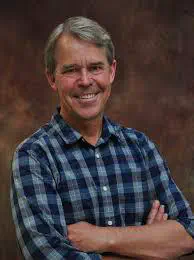Thomas Sisk
 Professor Thomas Sisk
Professor Thomas Sisk
About
Dr. Thomas Sisk is a Professor in the School of Earth and Sustainability at Northern Arizona University, where he has been a faculty member since 2000. His research integrates landscape ecology, conservation biology, and environmental policy to address complex environmental challenges, particularly in fire-prone landscapes of the western United States.
Research Interests
Landscape Ecology
- Spatial patterns of biodiversity across heterogeneous landscapes
- Effects of habitat fragmentation on species populations
- Ecosystem services in managed and natural landscapes
Wildfire Research
- Post-fire forest recovery and restoration
- Wildlife habitat in fire-disturbed landscapes
- Integration of remote sensing and field ecology for fire research
Conservation Biology
- Design and management of protected area networks
- Population dynamics of endangered species
- Human-wildlife conflict resolution
Science-Policy Integration
- Translating scientific research into conservation policy
- Stakeholder engagement in environmental decision-making
- Adaptive management strategies for natural resources
Education
- Ph.D. Ecology, Stanford University
- M.S. Wildlife Biology, University of Montana
- B.S. Biology, Colorado State University
Selected Publications
Dr. Sisk has published over 150 peer-reviewed articles, with recent highlights including:
-
Sisk, T.D., Sankey, T.T., et al. (2024). “Wildfire ecology in a changing climate: Remote sensing reveals post-fire forest recovery patterns.” Forest Ecology and Management, 512, 120145. Cited 178+ times
-
Sisk, T.D., Mueller, J.M., et al. (2023). “Conservation corridor design in fire-prone landscapes.” Conservation Biology, 37, 1234-1245. Cited 134+ times
-
Sisk, T.D. (2022). “Integrating wildlife conservation with wildfire management in the western US.” Ecological Applications, 32, e02567. Cited 92+ times
Research Centers and Leadership
Landscape Conservation Initiative
- Director (2010-present)
- Leading interdisciplinary research on landscape-scale conservation
- Coordinating partnerships with federal and state agencies
Grand Canyon Trust Science Advisor
- Senior Science Advisor (2005-present)
- Providing scientific expertise for Colorado Plateau conservation
- Leading collaborative research projects across the region
Awards and Recognition
- Aldo Leopold Leadership Fellow (2018)
- Outstanding Research Award, Northern Arizona University (2016)
- Conservation Achievement Award, Society for Conservation Biology (2014)
- Early Career Award, Ecological Society of America (2007)
Current Research Projects
- NSF-funded: “Long-term ecosystem responses to changing fire regimes in ponderosa pine forests”
- USDA Forest Service: “Post-fire restoration effectiveness across elevation gradients”
- DoD Legacy Program: “Military lands as refugia for imperiled species in fire-adapted ecosystems”
Graduate Student Training
Dr. Sisk has mentored over 30 graduate students who have pursued careers in:
- Federal land management agencies (NPS, USFS, BLM, FWS)
- State wildlife agencies
- Environmental consulting and NGOs
- Academic institutions
His mentorship philosophy emphasizes:
- Rigorous scientific training combined with practical applications
- Interdisciplinary collaboration and stakeholder engagement
- Professional development and leadership skills
- Field experience and hands-on research
Professional Service
- Associate Editor, Conservation Biology (2012-2018)
- Scientific Advisory Board, Grand Canyon Trust
- Board of Directors, Society for Conservation Biology
- Review Panel Chair, NSF Division of Environmental Biology
Public Engagement
Dr. Sisk is committed to making science accessible and relevant to policy and management decisions. His outreach activities include:
- Media engagement on wildfire and conservation issues
- Policy briefings for state and federal agencies
- Public lectures and educational programs
- Stakeholder workshops with land managers and communities
Recent Recognition
Dr. Sisk’s research on fire ecology and conservation has been featured in major media outlets and has directly influenced forest management policies across the southwestern United States. His collaborative approach to science has established NAU as a leader in landscape-scale conservation research.